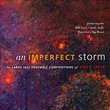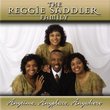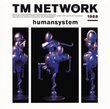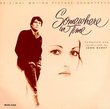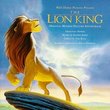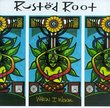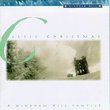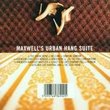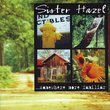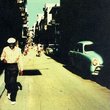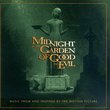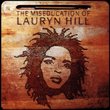| All Artists: Jean-Yves Thibaudet Title: Gershwin: Piano Concerto / Rhapsody in Blue Members Wishing: 1 Total Copies: 0 Label: Decca Original Release Date: 1/1/2010 Re-Release Date: 4/27/2010 Genre: Classical Style: Symphonies Number of Discs: 1 SwapaCD Credits: 1 UPC: 028947821892 |
Search - Jean-Yves Thibaudet :: Gershwin: Piano Concerto / Rhapsody in Blue
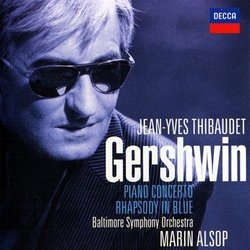 | Jean-Yves Thibaudet Gershwin: Piano Concerto / Rhapsody in Blue Genre: Classical
Jean-Yves Thibaudet performs "jazz band" orchestrations of Rhapsody in Blue, variations on `I Got Rhythm,' and the Concerto in F live with the Baltimore Symphony and music director Marin Alsop. French pianist Jean-Yves Thi... more » |
Larger Image |
CD DetailsSynopsis
Album Description Jean-Yves Thibaudet performs "jazz band" orchestrations of Rhapsody in Blue, variations on `I Got Rhythm,' and the Concerto in F live with the Baltimore Symphony and music director Marin Alsop. French pianist Jean-Yves Thibaudet has long been a champion of Gershwin's music and has widely performed the Concerto in concert with major symphony orchestras around the world. Now, after more than 40 releases on Decca, Thibaudet turns his attention solely to the works of Gershwin. For this release, Thibaudet has made the daring choice to perform the original "jazz band" arrangements by Ferde Grofé for the Paul Whiteman Orchestra. Rarely heard or recorded, these arrangements create a completely different sound for these well-known and popular works, especially Rhapsody in Blue. Thibaudet is joined by Gershwin fan, American conductor Marin Alsop and the Baltimore Symphony Orchestra for these live recordings. Gershwin is one of the most popular composers and Thibaudet gives a fresh spin and new twist on these familiar, and justly beloved, pieces. Similar CDs
Similarly Requested CDs
|
CD ReviewsMarin Alsop, Jean-Yves Thibaudet, Baltimore SO: Gershwin Rha Dan Fee | Berkeley, CA USA | 05/21/2010 (5 out of 5 stars) "This disc pulled me in and pushed me away at the same time. It looked on the downside like it might be yet another of those crossover efforts doomed to failure, usually drummed up by a marketing department with big name players to deploy. I've not always been a stark raving fan of pianist Jean-Yves Thibaudet, not that he ever plays anything all that badly. I sometimes just don't felt engaged and convinced by his musical views in some of the literature; oh, well. He's got the jet-setting musical career; I don't. For up sides, several glimmers might draw us in. Baltimore (under former Music Director David Zinman, now holding forth in Zurich at the Tonhalle) gave us one of the very best readings of the Gershwin Concerto in F. Their partnership with Helene Grimaud jazzed right up to the top of my keeper lists; as did the companion reading of Ravel's Concerto in g. If you look closely at the back disc cover, you will see that we are given the Ferde Grofe arrangements for jazz band ... although later listening seems to confirm that these famous originals have been adapted just a bit to suit the larger departments of the Baltimore SO. Still, the catalog competition is pretty well established, both in the "Blue" rhapsody and in the piano concerto. Rhapsody keepers can start with the young Bernstein's long-lasting reading, then go on to consider other classics like Earl Wild with Fiedler (now remastered in super audio). Other appealing rhapsodies have been let loose by Wayne Marshall, Michael Tilson Thomas accompanying the 1925 piano rolls with the composer in the solo assignment, and Tzimon Barto with Andrew Davis letting their hair down more than you might expect (one of my sleeper favs). In the piano concerto I start my own keeper list with Grimaud in Baltimore - it has an uncanny meld of through-playing, glitter, sizzle, and sensuousness. I also like Earl Wild - with Fiedler in super audio, and in Des Moines with Joseph Giunta. The up side is considerable, after all. Somehow Thibaudet manages to serve up plenty of water front dive slouch, even as his keyboard technique stays consistently French-Piano-School. Marin Alsop has plenty of ability to bring out the saxophonic-swinging side of the Ferde Grofe orchestration, simultaneously with keeping a good eye or ear out for the symphonic dimensions of each piece as a whole. Most readings fall off the fence, landing way over on the free-wheeling pop side or the classical concert-hall side of these Gershwin works. Also, somewhat surprisingly, both Thibaudet and Alsop emphasize the driven-motoric pulses and figurations of Gershwin's muse. I found myself hearing clear links to Bartok and Prokofiev keyboard manners - and all to the benefit of Gershwin, in all three keyboard-orchestra outings. The reading of the rhapsody manages propulsion, whimsy that nearly sounds improvised on the very spot, and bluesy lyricism that always keeps moving forward. Thibaudet and Alsop and the band seem able to position the rhapsody in its own Tin Pan Alley era, surprise connoting George Antheil being channeled by Francis Poulenc (among others?), while never, ever serving it up as a disconnected series of fun episodes that still don't quite add up, or rendering it as a giant symphonic-classical over-reach for jazz manners and sensibilities trying to strong arm pass the old money guards in the front lobby. Second, we get the variations on that very durable tune, I got rhythm. Thibaudet and Alsop and the band bring it off handsomely, too. A step forward in coherence, rather closer kin to the famous Rachmaninoff Paganini Rhapsody than I had before glimpsed. The fun spirits open up readily, reminding us of Porgy and Bess and the Cuban Overture. The unanimity of perspective which all involved are bringing to bear through all of the imaginative variations helps infuse and connect them, again all to the better, all to the musical good. And again, these proceedings are enriched with passing motoric figuration associations with keyboard innovations by Bartok and Prokofiev, not to mention avant-garde composers like Henry Cowell and George Antheil. The disc wraps up with Ferde Grofe's take on the piano concerto. Apparently, Gershwin felt offended by Paul Whitman bothering to have Ferde do it, since the composer believed he had learned to do his own orchestrations by that point in time. So it was suppressed by the Gershwin estate for a long time, until the estate powers relented, under the cover of letting Ferde's version sound out, for historical reasons. Ferde's orchestration bends way down at times, slouching far lower into casual manners and tonally spiced up colors and manners than the composer's own orchestration; and yet it has its own ways of illuminating the genius of the piano concerto after all. Part of the quality on offer is still the ways that Thibaudet and Alsop and the band keep it all up in the air, really going strong - despite what one suspects would otherwise turn into low-brow sleaziness in other, less musically adept hands? Again, the concerto melds disparate sides of Gershwin into a rich, dazzling display that brings the music together, more often than not. We get all the blues-jazz spices we could possibly want, and all the direct-melody pop song appeal that only a great tune smith like Gershwin could serve up, with frisk and energy from both the Bartok-Prokofiev motorways, as well as from the quirky-glittering colors and shine we may tend to associate with Stravinsky-Ravel-Poulenc-Satie. The middle slow movement is as rich and bluesy-mournful as anybody could ever want, overflowing with those welcome connotations of Porgy and Bess. Very uptown, Manhattan Island, after hours. The stepping flow and the chromatic modulations have hardly ever made as much logical musical sense as they do in the capable-inspired handling of Thibaudet and Alsop and Baltimore. Then the final movement drives things home, as well as Bartok does in his second piano concerto. All in all, one whale of a musical Gershwin package, is this disc. The only possible improvement would be that a super audio surround sound edition of it could be released. So far as the rhapsody and variations go, this one is a sure-fire keeper. For the concerto, it rises high, right up there with my near-definitive concerto reading by Grimaud and Zinman, also in Baltimore .... (but in the Gershwin orchestration). Gotta grab it, fast. Watch out for the sharp edges on each of those five stars. Jazz hands, all around." Perhaps too "moderne" Douglas N. Hogue | Glendora, CA USA | 05/19/2010 (4 out of 5 stars) "The Thursday before this CD was released I saw a concert performed by Mr Thibaudet and this was the autographed disk offereed afterward I first to this with a person who disliked it because it seemed so entirely untraditional. I found that the focus seemed not so much on swing but speed. Aside fron the dramatically different orchestrations, the piano was much faster with riffs and onamentations played in a very different manner from what we are used to. If you are expectiong the normal 30's Gershwin, this ain't it, but if you approach this CD as an entirely new experience it is a lot of fun to hear. My issue is with the engineering. Balance is not what it should be, especially in the concerto. The percussion is sometimes piercing with the saxaphones sounding far away. Still I listen to this often." Thibaudet swings if you don't listen too closely; the highli Santa Fe Listener | Santa Fe, NM USA | 04/29/2010 (4 out of 5 stars) "The French are famously crazy for "le jazz," and Paris has been the last stand for many an aging American great like trumpet Chet Baker. It's too much to expect Thibaudet to sound like Leonard Bernstein on his classic Columbia LP of 'Rhapsody in Blue,' now on Sony. Even the older Bernstein, when he did a remake for DG, didn't sound like his brash younger self anymore. A lot of blues has run under the bridge since then, and we have any number of variations on the original jazz band orchestration done for Paul Whiteman as well as rearrangements with strings added. This new one, using the original instrumentation, finds Thibaudet on middle ground -- for a Frenchman he swings, but for an American he's square. The presence of Marin Alsop guarantees a tinge of authenticity, but I've never felt much swing from her, either. One irritation is an over-active clarinet cutting loose in the opening; another is Thibaudet's sudden punchy interjections, which I suppose are his own inspiration.
At nearly 10 min. the cheerful variations on "I Got Rhythm" for piano and jazz ensemble (no strings, extra saxophones) is fairly substantial. Thibaudet is gallant in his attempts to sound American, but he's like Robin Williams playing an aspiring Russian sax player in Moscow on the Hudson -- when he sits in with real jazzmen, they know instinctively that he's not in the groove. We arrive on safer ground with the Concerto in F. Despite its jazzy keyboard techniques, Gershwin was breaking into the concert hall here, and his orchestral writing is just Carnegie Hall enough to allow Thibaudet's concert-pianist persona to fit in. He takes every advantage to offer a bumptious, extroverted reading, and Alsop gets fairly bluesy, too. In all, it's the highlight of the CD. Bernstein didn't leave a recording to show us how it's really done, but Andre Previn on EMI is in the groove, so I can't say there's a prevailing reason to go for this new concerto recording. Previn's string body sounds much fuller, also, but I tend to like Alsop's horn-heavy sound. The new Decca certainly has excellent sound, and all the performances are appealing, with big technique from the soloist. A lot depends on how literally you take Duke Ellington's song, "It don't mean a thing if it ain't got that swing." This CD has everything else." |

 Track Listings (5) - Disc #1
Track Listings (5) - Disc #1